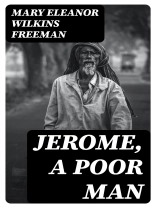In ‘Jerome, A Poor Man, ‘ Mary Eleanor Wilkins Freeman explores the multifaceted struggles of her titular character, a working-class man grappling with the harsh realities of poverty and societal expectations in late 19th-century America. Freeman’s narrative is characterized by a naturalistic style, employing detailed descriptions and psychological depth to illuminate Jerome’s internal conflicts and the external pressures he faces. The story unfolds against the backdrop of New England, with richly drawn settings that reflect the emotional landscape of its characters, showcasing the tension between economic hardship and personal aspiration. Mary Eleanor Wilkins Freeman was a pioneering figure in American literature, known for her incisive portrayals of rural New England life and the experiences of women. Raised in a modest household and familiar with the nuances of financial struggle, Freeman’s own life experiences fueled her compassion for the marginalized. Her ability to weave complex, realistic characters into her narratives stemmed from both her keen observation and her deep empathy, which served to humanize the often-overlooked struggles faced by the poor. ‘Jerome, A Poor Man’ is highly recommended for readers interested in social realism and the intricate dynamics of class in literature. Freeman’s astute character studies and the poignant depiction of Jerome’s journey not only shed light on the socio-economic issues of her time but also resonate with contemporary themes, making it a compelling read for anyone curious about the intersection of personal and societal hardship.
Про автора
Mary Eleanor Wilkins Freeman (1852–1930) was a prominent American fiction writer and poet, renowned for her realistic portrayals of life in rural New England. Her literary style is characterized by her nuanced depiction of women’s lives, exploration of social pressures, and psychological insight. Freeman’s work often addresses themes of independence, self-reliance, and the constraints of society, particularly as these issues affect women. Her narratives are marked by a keen observational acuity and a deep empathy for her characters, often highlighting the inner strength and resilience of those living in small-town settings. ‘Jerome, A Poor Man, ‘ a novel written by Freeman, exemplifies her astute examination of the intersection of poverty, morality, and the human spirit. Freeman’s contributions to American literature have earned her a place of significance, with works that continue to be studied for their cultural and historical value. Her prose is celebrated for its clarity, regionalism, and pioneering role in the development of feminist literature. Freeman remains a distinguished figure in literature, remembered for her profound impact on the representation of women’s internal and external challenges in an ever-evolving society.












